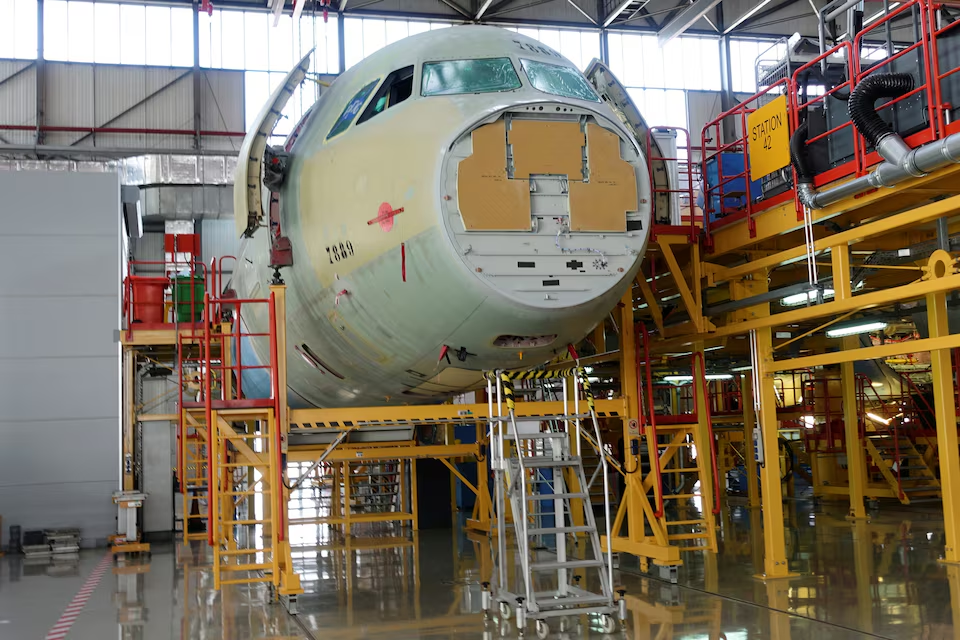Airbus has inaugurated a second jet assembly line in Tianjin, China, as part of its plan to boost production of the A320neo aircraft. The new facility is a key step in the company’s strategy to increase monthly output from 60 to 75 aircraft by 2027.
The Tianjin expansion is expected to be fully operational by early 2026, allowing Airbus to meet growing demand for single-aisle jets in Asia and other global markets. The additional production capacity is aimed at supporting airlines seeking modern, fuel-efficient aircraft.
Airbus executives emphasized that the new assembly line will enhance efficiency and strengthen the company’s position in the competitive aviation sector. The facility combines advanced automation with experienced workforce expertise, enabling faster and more precise aircraft assembly.
The A320neo family has been a cornerstone of Airbus’s commercial aircraft portfolio. Its fuel efficiency, reduced emissions, and lower operating costs make it a preferred choice for airlines worldwide. By expanding production, Airbus aims to meet rising passenger traffic and fleet renewal demands.
Industry analysts note that the new Tianjin line reflects Airbus’s commitment to its long-term growth strategy in Asia. The region remains a major growth market for aviation, and local assembly capabilities help reduce logistics costs and delivery times for regional airlines.
The expansion is also expected to create additional employment opportunities in Tianjin. Airbus is hiring skilled engineers, technicians, and support staff to operate the new line, contributing to local economic development while enhancing production capacity.
Airbus’s production ramp-up aligns with global trends in the aviation sector. Airlines are seeking more fuel-efficient aircraft to reduce costs and meet environmental targets, while manufacturers compete to deliver aircraft quickly and reliably.
The new assembly line will operate alongside the existing Tianjin facility, which currently produces 60 A320-family aircraft per month. With both lines running at full capacity, Airbus is positioned to meet its ambitious 2027 production target.
Company officials stressed that the expansion demonstrates Airbus’s focus on innovation and operational excellence. Investments in automation, quality control, and workforce training are designed to maintain high standards while increasing output.
Investors have responded positively to Airbus’s growth initiatives. The increased production capacity signals strong future revenue potential and reinforces Airbus’s leadership in the single-aisle aircraft market.
Looking ahead, Airbus plans to continue optimizing its global production network. Facilities in Europe, North America, and Asia will work together to ensure timely delivery, reduce costs, and meet evolving airline needs.
The Tianjin expansion underscores Airbus’s long-term commitment to serving the Chinese and broader Asian aviation markets. By increasing A320neo production, the company strengthens its ability to supply airlines with efficient, modern aircraft while supporting sustainable growth in the aerospace industry.

